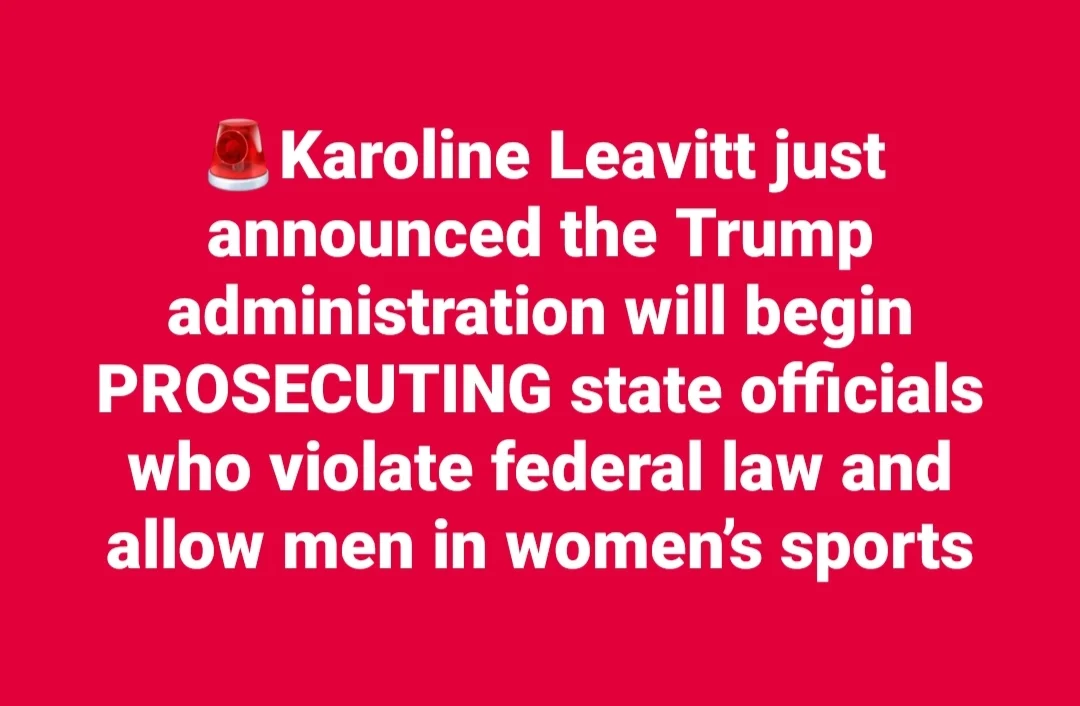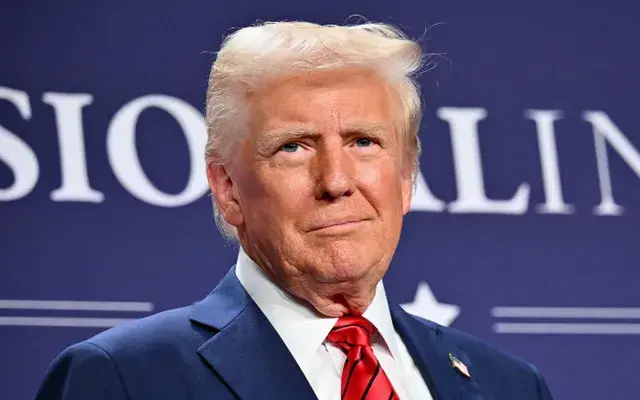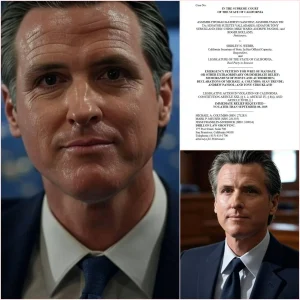In a stunning new development, Karoline Leavitt, spokesperson for the Trump administration, has just announced a bold move that is set to send shockwaves through the world of sports and politics. The administration will begin prosecuting state officials who violate federal laws by allowing transgender women or men to participate in women’s sports. This decision marks a significant escalation in the ongoing debate over transgender athletes and their participation in gender-specific competitions.

The announcement comes amidst growing controversy surrounding the inclusion of transgender athletes in women’s sports, with critics arguing that biological males, even those who transition, may have physical advantages over their female counterparts. Supporters of transgender rights, on the other hand, argue that these athletes should be allowed to compete on a level playing field, regardless of gender identity, as a matter of equality and inclusion.

Leavitt, in her statement, made it clear that the Trump administration is committed to upholding what they perceive as fairness in women’s sports. “We will no longer allow states to ignore federal law and put biological women at a disadvantage,” Leavitt said. “This is about preserving the integrity of women’s sports, ensuring that women have a fair chance to compete.”
The policy shift is expected to have profound implications for both the legal landscape and future participation in women’s athletics. Legal experts have already begun weighing in on the potential challenges this new directive might face, with some suggesting that it could result in a prolonged legal battle between federal and state governments over the interpretation of gender and Title IX, the federal law prohibiting sex-based discrimination in education and athletics.
At the heart of the matter is the question of how the law should balance issues of equality and fairness. While proponents of transgender inclusion argue for a more inclusive approach, critics like Leavitt and the Trump administration contend that allowing men to compete in women’s sports undermines the principles of fair competition and equal opportunity for women.
As the announcement reverberates through the sports world, it is clear that this new stance will spark even more heated debates over the future of sports, gender, and equality in the United States. State officials, especially those in states where transgender athletes have been allowed to compete in women’s sports, will likely face pressure to navigate this new directive, balancing federal mandates with local policies and their own legal interpretations.
This new push by the Trump administration promises to reshape the discourse surrounding transgender athletes and could pave the way for significant policy changes that impact both professional and collegiate sports. The question remains: will this legal shift mark the beginning of a nationwide crackdown on transgender participation in women’s sports, or will it spark a wider push for more inclusive policies that aim to balance both fairness and inclusion? The coming months will likely provide answers as states, legal experts, and activists grapple with the implications of this landmark decision.






